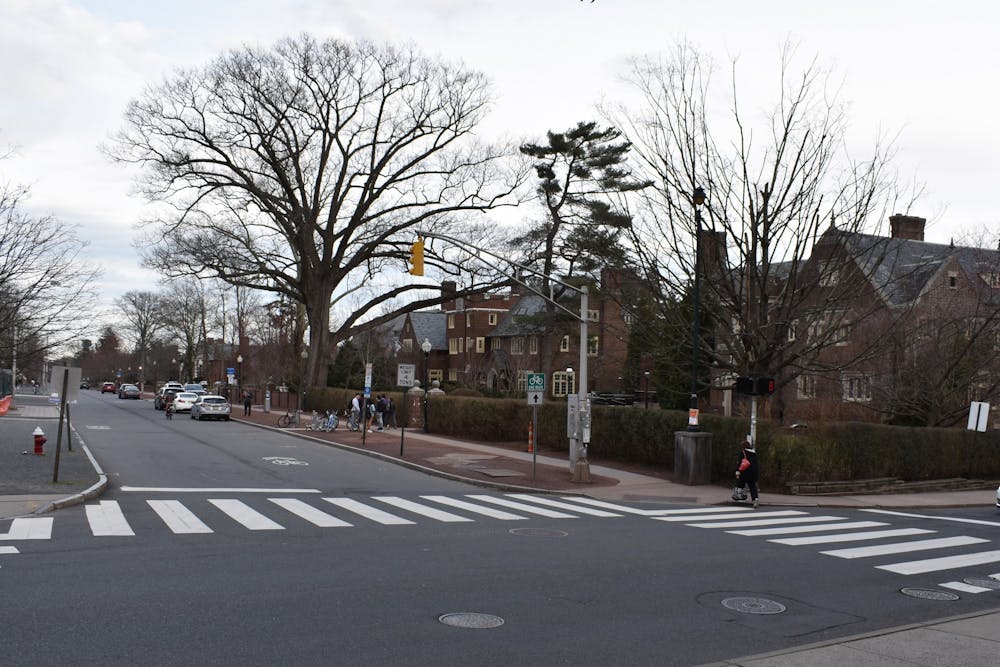The UMatter Bus, a nightly bus service that transported students from Prospect Avenue to their dorms on nights out, has been discontinued due to low ridership, according to a spokesperson for University Health Services and Transportation and Parking Services (TPS).
“I was sad when it ended, because I thought it was a good idea, and it’s so cold for so long that I feel like it’s really nice to have a bus,” Jules Regan ’25 told The Daily Princetonian in an interview. She has taken the bus twice from Prospect Avenue when it was cold outside.
“Having [the UMatter Bus] demonstrated care from the University,” Regan added. “It was a really nice thing to tell freshmen about, as a [Residential College Advisor]. It was a really nice thing to say, ‘if you’re ever on the street, if you ever need somewhere to go, out of the cold and to get home, the UMatter bus is here.’”
UMatter is a University-wide program that aims to prevent high-risk drinking, mental health distress, and interpersonal violence and abuse across the campus. In an interview with the ‘Prince,’ UMatter Senior Engagement Specialist Cassandra Eng ’25 said that the core mission of UMatter is to encourage community care, and “giving people resources to not only learn how to take care of themselves, but also how to look out for others.”
SHARE peer Mariana Castillo ’26 said that when she staffed the bus last semester, the bus wasn’t overflowing but “every rotation it did, people got on it — maybe groups of around four to six people.”
”People definitely used it, especially people who lived in Yeh and were really far,” she added.
Launched in 2015, the UMatter Bus operated on Thursdays, Fridays, and Saturdays from 12:30 to 2:30 a.m. Buses did not operate on a set schedule and would wait on Prospect Avenue in front of the Carl A. Fields Center for Equality and Cultural Understanding for passengers to board and would depart roughly every 30 minutes, dropping passengers off at residential colleges. It serviced 10 passengers per night on average, according to the University spokesperson.
The idea for the bus originated from EGR 392: Creativity, Innovation, and Design, in which students conducted a project on how to “mitigate sexual aggression on campus.”
According to the spokesperson, the UMatter Bus was staffed by Peer Health Advisors and SHARE Peers who were trained “to respond to someone who is intoxicated and needs medical attention, to create a distraction for someone who is experiencing unwanted sexual advances or interpersonal violence, or to check in on peers who might need additional support.”
After a decline in ridership following the COVID-19 pandemic, the UMatter Bus service was paused in December 2023.
“I don’t think that the UMatter Bus was super well publicized in terms of times it would come. Everybody knew that it existed, but it was kind of elusive, like if you just so happen to see it, it was your lucky night,” Regan said.
“I feel like nobody knows about it, and it wasn’t very advertised as an option. I didn’t know about it my freshman year. I found out about it because I was a SHARE peer, and I had to staff it,” Castillo added.

The elusiveness of the UMatter Bus was partially addressed by the new late-night TigerTransit service launched in the fall. These new bus services — the N5 and N6 routes, which connect Prospect via Fisher Hall and Friend Center to dormitories via the Admissions Information Center and Princeton Station — operate on a fixed schedule, unlike the UMatter Bus.
After conducting a survey, TPS identified the need for “more frequent and direct late-night service for better connections around campus after dark,” leading to the new service.
“If TigerTransit replaces the UMatter Bus, and if the marketing for TigerTransit changes to reflect that, I think it’s a really great idea,” Regan said. “I’m okay with it changing, as long as there’s some bus, because I just think it was a nice service.”
Hannah Gabelnick is a staff News writer for the ‘Prince’ from Buffalo, N.Y.
Please send any corrections to corrections[at]dailyprincetonian.com.








